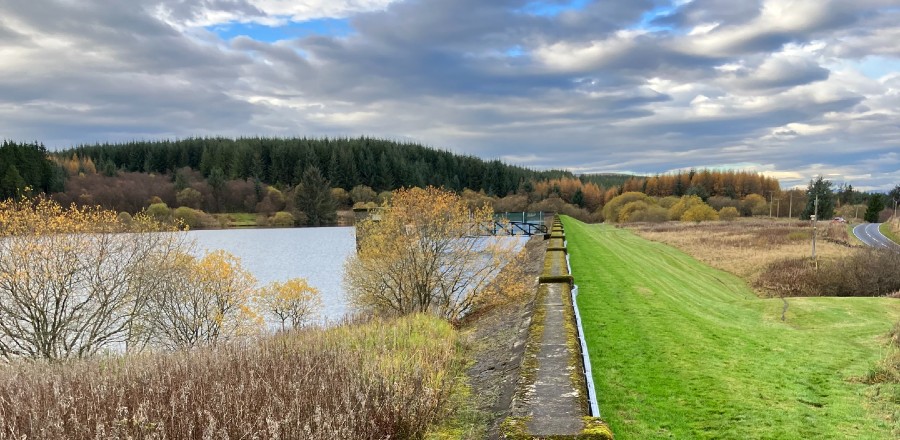Nature-based solutions for climate-related water issues

Researchers from Glasgow Caledonian University are seeking to find nature-based solutions to the effect of climate-related floods on drinking-water reservoirs.
The team has found that issues such as taste, odour and heavy metals are becoming more severe and frequent, and are costing water companies millions of pounds every year. They believe there is an urgent need to understand the source of these water-quality problems and to devise solutions that are inspired by nature.
In this context, and using funding granted by the Hydro Nation Chair, a team of Glasgow Caledonian’s School of Computing, Engineering and Built Environment researchers organised a two-day multidisciplinary workshop that brought together UK academics and water companies to get to the root of these problems and identify sustainable solutions.
The team, led by Dr Alejandro Gonzalez-Ollauri, and including Dr Ania Escudero, Ben Fisher, Julze Alejandre and Dr Sennan Mattar, collaborated with researchers from the UK’s Centre of Ecology and Hydrology, The James Hutton Institute, and the Universities of Bath, Cardiff, and Leeds.
The workshop outcomes were gathered in a final declaration, which will set the basis for a new research programme focusing on addressing drinking water quality issues with nature-based solutions.
Some of the solutions to be considered are:
Leaky dams: Dams designed to allow controlled leakage, which helps in managing water flow and preventing floods.
Sediment traps: Structures designed to capture and retain sediment, preventing it from being carried away by water and causing issues downstream.
Created wetlands: Man-made wetland areas that can absorb and store excess water during periods of high rainfall.
Buffer strips: Strips of land with vegetation that act as a buffer between water bodies and surrounding areas, helping to filter and control water runoff.
Live pole drains: Drainage systems incorporating living plants to control water flow and prevent erosion.
Continuous-cover forestry: A forestry management approach where trees are harvested without clear-cutting, ensuring a continuous tree cover to help regulate water cycles.
Dr Gonzalez-Ollauri said: "The overall goal of these nature-based solutions is to use natural elements to manage water resources and mitigate the impact of floods to make reservoirs resilient to climate change in a more environmentally friendly and sustainable way."
